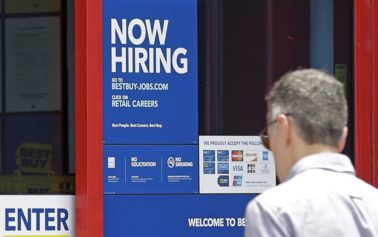Economists have long known that single women were far more likely to lose their jobs during the Great Recession — in fact, the employment gap between single and married women was as large as the much-vaunted one between women and men. But here’s something puzzling: unmarried women started losing jobs well before the recession began, and nobody’s really sure why.
According to a paper presented today at a major macroeconomics conference by Johns Hopkins economist Robert Moffitt, the rising unemployment that characterized the Great Recession actually started much earlier, in the year 2000. Until then, women’s employment in particular had been steadily rising — but after about 2000 it began to level out, and single women’s employment began a marked decline. Between 1999 and 2007, Moffitt writes, married women’s employment fell by about 0.3%, while the figure for single women dropped by 2.9%, or almost ten times as much (unmarried men also lost more jobs than married ones, but the difference was far smaller).
The early 2000s are also when people started talking about the “opt-out revolution” — in 2003, New York Times reporter Lisa Belkin used that term to describe well-educated women dropping out of the labor force to raise kids. Nine years later, we’re still hearing about it. But most discussions of opting out focus on married women. And even if unmarried moms were able to opt out without a partner’s income to rely on, that wouldn’t explain the employment drop — it was especially pronounced among women without kids. Employment among childless single women dropped by 3.5% between 1999 and 2007 — among single moms, it dropped just 0.4%.
Moffitt isn’t sure what caused the drop — he writes that some of the decline in employment among men between 1999 and 2007 can be explained by known factors like changes in non-labor income (from sources like Social Security), but these factors don’t explain the drop among single women at all. He closes his report with a call for further study.
Regardless of causes, though, the effects of unemployment on unmarried women can be severe. They’re more likely to live in poverty, and they don’t have a spouse’s health insurance to rely on if they lose theirs…
Read more: Buzz Feed

